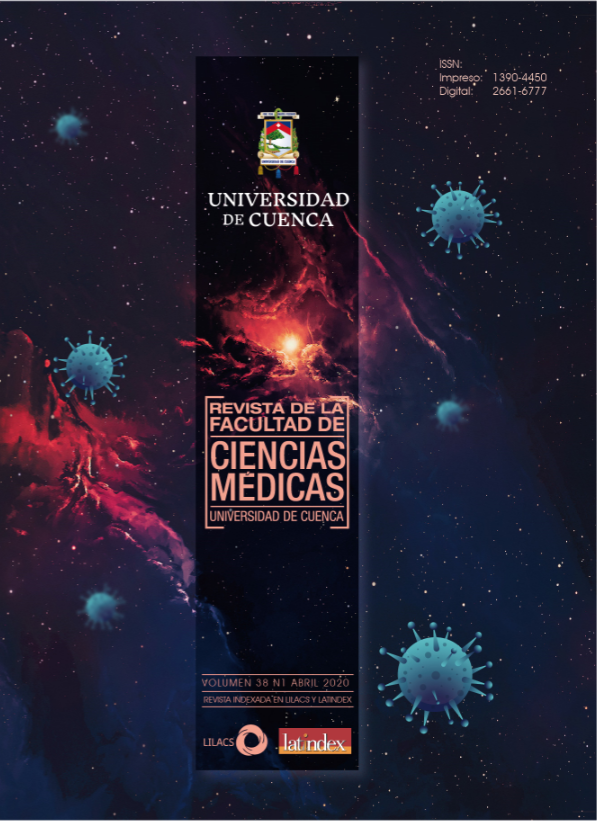Quality of life perceived by cancer patients in stage III and IV, from the José Carrasco Arteaga Hospital. Cuenca 2018
DOI:
https://doi.org/10.18537/RFCM.38.01.05Keywords:
quality of life, inpatients, neoplasms, epidemiology descriptive, socio-demographicAbstract
ABSTRACT
The quality of life in cancer patients is a multidimensional construct that must be analyzed with a comprehensive approach.
Objective: to determine the quality of life perceived by cancer patients in stage III and IV from the José Carrasco Arteaga Hospital. Cuenca 2018.
Methodology: It is a descriptive quantitative study, carried out on 80 patients who were hospitalized to receive a cancer treatment and signed an informed consent. A form was applied in which sociodemographic data, characteristics of cancer and an Inventory of Quality of Life and Health (InCaViSa) are included, the information was analyzed with the SPSS version 25 program, frequencies and percentages were used as statistics.
Results: a total of 47.6% of the patients identify having a poor and very poor quality of life, the most frequent pathology was breast cancer (30%), 53.8% received chemotherapy, 61.3% had a disease time of less than 1 year. In the InCaViSa areas, they presented low scores in: concerns, physical performance, isolation, body perception, attitude towards treatment, free time and daily life; high score in: cognitive functions, family and social networks.
Conclusions: about half of the participants perceived their quality of life as poor and very poor, in the affected areas it was found that both family and social support were positive, in contrast to poor adherence to treatment and a negative relationship between the doctors and patients.
Key words: quality of life, inpatients, neoplasms, epidemiology descriptive, socio-demographic.
Downloads
Published
Issue
Section
License
Copyright © Autors.

You are free to:
 |
Share — copy and redistribute the material in any medium or format |
 |
Adapt — remix, transform, and build upon the material for any purpose, even commercially. |
Under the following conditions:
 |
Attribution — You must give appropriate credit, provide a link to the licence, and indicate if changes were made. You may do so in any reasonable manner, but not in any way that suggests the licenser endorses you or your use. |
| NonCommercial — You may not use the material for commercial purposes. | |
| ShareAlike — If you remix, transform, or build upon the material, you must distribute your contributions under the same license as the original. |
| No additional restrictions — You may not apply legal terms or technological measures that legally restrict others from doing anything the licence permits. |






